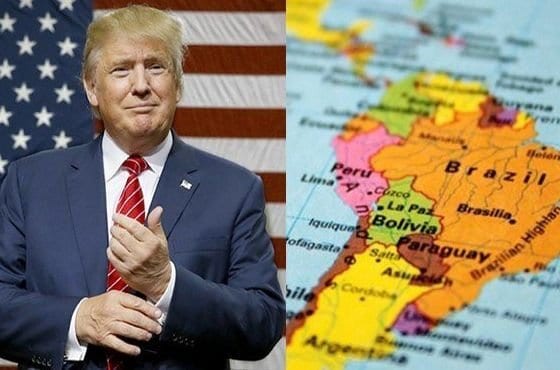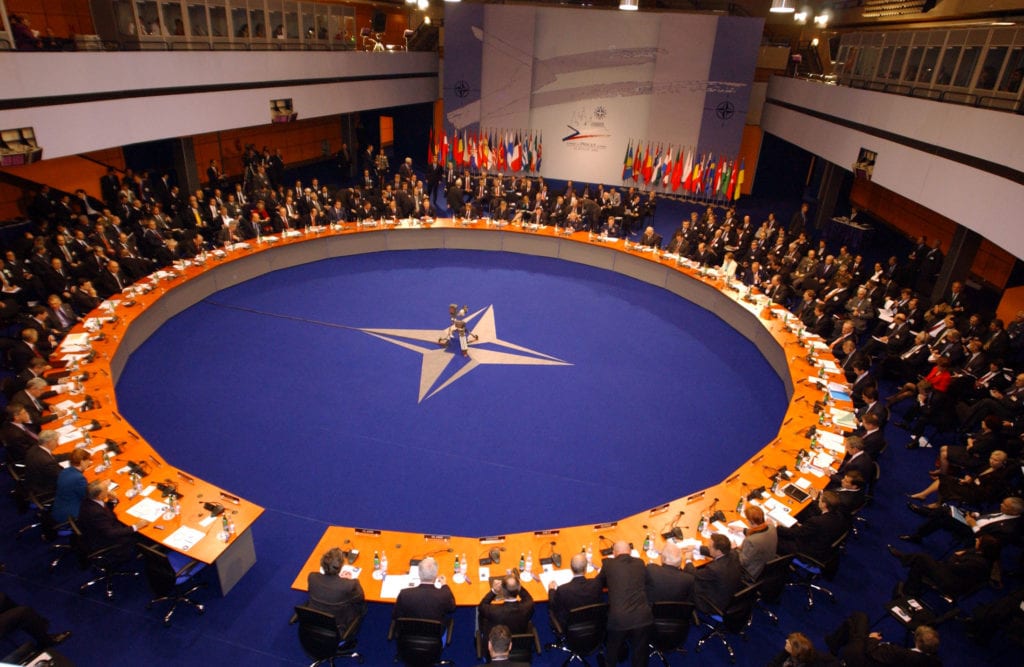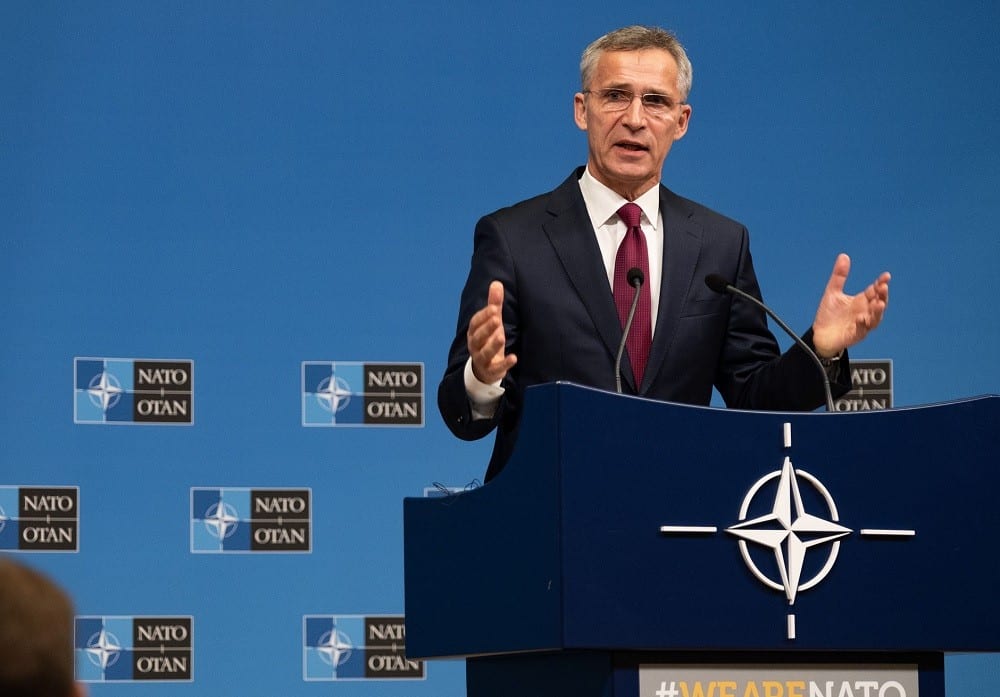The crisis of the “left” regimes in Latin America immediately brought several themes into the modern international agenda. Of these, one of the most debated remains the role of the United States in the region, and as a result, a discussion about the function of the North Atlantic Treaty Organization in Latin American countries ensues. Is the NATO ready to expand partnerships in Latin America? How can such a prospect be reflected in the ongoing regional processes?
On 4 April, the NATO Secretary General Jens Stoltenberg, in an interview with the “Reuters” news agency, said that the North Atlantic Alliance is interested in developing partnerships with Latin American countries during the Ministerial meeting in Washington. The NATO Secretary General stressed that the members of the Alliance are ready to consider the possibilities and ways for establishing relations with Latin American countries, which in the future will help create a solid basis for close practical and political interaction.

It is worth recalling that today the official only partner of the Alliance on the mainland is Colombia, although Donald Trump (Donald John Trump) on March 19 of this year during the official visit of Jair Bolsonaro (Port. – Jair Messias Bolsonaro) to the USA admitted that Brazil will be able to become the next “partner” of the block. However, many international observers are inclined to believe that the Brazilian state has very remote prospects to join the NATO in this capacity, because it will require the consent of more than twenty European allies, among which even the less dramatic expansion of the Alliance within Europe has caused a split. To be granted the NATO’s “partner” status, the consent of all 29 countries of this bloc is required. Therefore, it is not for nothing that Trump during his official visit to Bolsonaro in Washington said that in order to assign Brazil the status of the NATO’s “partner” in the region, he would have to “talk” with many people.
In his April interview, Jens Stoltenberg did not mention the intention of the “boss” of the White House to include Brazil in the list of the most obvious candidates for a place in the Transatlantic Alliance. Answering the question of journalists whether Brazil will be able to become a member of the bloc, the Secretary General gave a negative answer. Indeed, according to the NATO Charter, the “partners” of the Alliance are not its members. According to Stoltenberg, the bloc members work in very close cooperation with such “partners”, both practical and political, and this is a very good way to strengthen cooperation between the NATO and countries that are not members of the Alliance. Other “NATO global partners” include countries such as Afghanistan, Iraq, Japan, South Korea, Mongolia and Pakistan. Stoltenberg noted that the NATO will be able to explore the possibility of assigning the status of “partners” of the Alliance to other Latin American countries, following the example of Colombia. Assigning the status of “a major ally who is not a full-fledged member of NATO” means raising the status of the state for the bloc participants, which can give the country preferences in terms of purchases of American military equipment and technology.
Turning to the historical panorama of relations between Latin American states and the North Atlantic Treaty Organization, it is worth remembering that until 2017, the bloc did not have “partners” among Latin American countries, then in 2017, Colombia became the first ally in the region. In 2017, the Colombian government achieved the Agreement to become the only Latin American state to join the NATO as such a “global partner”. This status is lower than the status of “ally”, which means that the country is not obliged to participate in collective hostilities. At the same time, the status of Washington’s “ally” outside the NATO, which Trump mentioned at the meeting with Bolsonaro, can be granted solely by the decision of the American authorities. This “privilege” can be achieved by such states that are not part of the North Atlantic Alliance, but systematically participate in joint military operations with the United States: exercises, counter-terrorist operations, scientific and defense projects, etc. Currently, the main “ally” of the United States outside the NATO in the Latin America region is only Argentina. Argentina was granted this status in 1998.

According to authoritative political experts, such an invitation to Latin American states to cooperate closely with the NATO will become a new milestone in the history of the Alliance, because then the bloc will become more “pro-American”, it will not be expanded solely thanks to European countries and, perhaps, will be faster and more confident to use force. Some representatives of leading Latin American media believe that the White House intends to strengthen its position not only in Latin America, but also in Asia and the Middle East, which can guarantee the US global leadership. In this scenario, the NATO will be used as the main tool to achieve this goal.
Today, the US government is committed to ensuring that all their allies act as a united front. However, within the Alliance there is no unanimity now. France and Germany raised the question of creating a unified European armed forces; Washington can’t establish a constructive dialogue with Turkey. Following this logic, the more pro-American countries in the NATO, the stronger the White House’s voice in the Alliance.
In this situation, that Brazil, like Colombia, will be able to achieve the status of a “global partner” of the NATO, thanks to these Latin American states, the United States will receive complementary military support. In addition, most likely these new partners will be easier to convince to take part in hostilities than European countries. Some international observers are inclined to believe that with such a development of the situation, joint maneuvers with the countries of the Alliance are possible, for example, the US-Brazilian or the US-Colombian exercises on the border with Venezuela.
Nevertheless, all analysts agree that Washington intends to expand the NATO’s presence in Latin American countries in order to better control this region. Now the Alliance is actively used as the main tool in the confrontation of Washington with official Caracas. In turn, for Colombia, the process of obtaining the status of a “global partner” of the NATO was launched in 2017 and completed in May 2018, at the height of the conflict with neighboring Venezuela, where presidential elections took place in the same month, in which Nicolas Maduro (Spanish – Nicolás Maduro Moros) won. Colombia did not recognize the results of the people’s will. In February 2019, Colombia and Venezuela officially severed diplomatic relations. Experts believe that the White House also “stood” behind this decision. Thus, Washington will consistently pursue a policy of promoting its interests through the Alliance to the countries of Latin America.


